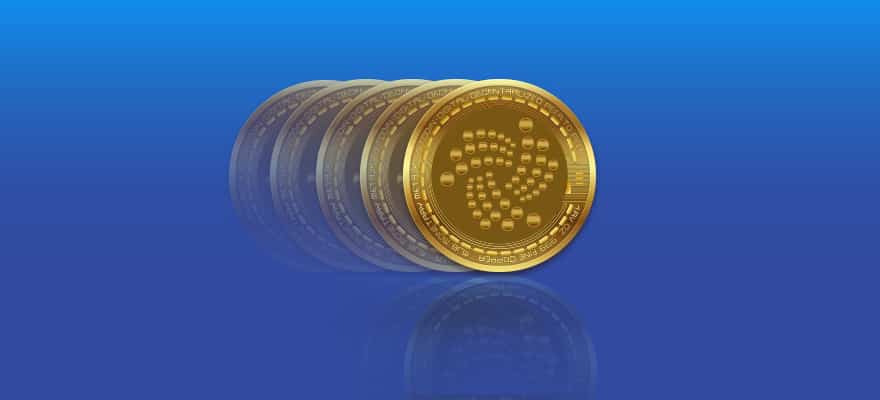IOTA has released details about what it calls its most significant project yet - Qubic.
The company has released a 2001-esque teaser trailer which features pixels flying around over a background of abstract animations that seem to be meant to represent computer processes. It ends with a scene of two planet-like objects connected by a shaft of light labelled 'qubic' while stringed instruments swell to a dramatic climax over a drum track. It doesn't explain much though.

Source: youtube.com
Background
IOTA was launched in 2015. It is one of the more valuable Cryptocurrencies out there, with a market capitalisation of $4.8 billion according to coinmarketcap.com. At one point it even surpassed Ripple, although that particular spike in price was at least partly due to a misunderstanding regarding the company's relationship with Microsoft.
It is a cryptocurrency designed to be faster than Bitcoin by using a unique kind of network which it calls 'the Tangle.' It works quickly because a new block of data is added automatically with every transaction, and these transactions can take place off-chain to be added later. Mining/verification is conducted by small groups of users who have been delegated the task.
IOTA has higher aims than being a cryptocurrency though - it wants to create an 'internet-of-things'. This is a concept where all devices are connected and controlled by the internet. To this end, IOTA has been developing a mysterious protocol called Qubic.
Qubic
The word Qubic comes from the acronym for 'quorum-based-computing'. A quorum is the minimum number of participants necessary to make the proceedings of a given meeting valid, which is a principle that can also apply to distributed ledger technology.
According to the official website, Qubic (big Q) is a protocol which will connect the world to the Tangle. Specific operations that take place within the protocol are called qubics. Qubics (small q) can do many things, but they all work on the same principle.
They work through what IOTA calls an 'oracle machines', which read and transmit data from the real world. This could mean election results, a human being's personal attributes, the weather. The qubics process that information, their main purpose being to ensure its consistency and reliability via consensus.
IOTA considers users to be one type of oracle machine ("the external actors such as users, or machines that provide sensor data"). So for those that enjoy fancy job titles, you may not be able to surpass what IOTA offers here.
The Qubic protocol also allows people to outsource computing, which means that devices can ask other devices to compute for them. One assigns a task to an available machine using a qubic programme, which will relay your instructions and the returning results while ensuring "that the results can be trusted to a high degree of certainty." Users can also offer their computing power to others.
At this point, it should be noted that Qubic is not a currency. There will be no ICO, and no tokens to buy. IOTA has not yet specified what the incentive would be to offer computing power.
Smart contracts are also a big part of the Qubic system. Introduced to the public by Ethereum, smart contracts are computer-based contracts which are popular because they are inherently free and fair, eliminating as they do the need for an unreliable human as a third party.
According to IOTA, Qubic will take these one step further: "While Qubic is of course capable of supporting these kinds of traditional smart contracts, the combination of fee-free transactions together with general-purpose quorum-based computation opens the door to entirely new possibilities."
These possibilities involve the internet-of-things. An oracle such as yourself could report weather data to the Tangle. The qubits take the data from users, make an average and publish it in the network. "The smart contract has now become an oracle in and of itself – that is, the contract itself has become a source of external data." This describes a kind of chain of information reliance. Another example would be exchange rate gathering, leading to market movement prediction, leading to portfolio management decisions.
IOTA says that Qubic "will be a platform for the greater community and ecosystem to create things we can’t even imagine yet." It has been working on it for "quite a while internally" and will be giving it priority over the next two years.


















